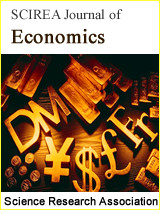Europe, Taxes, Fallacies and Equivocations
DOI: 10.54647/economics790503 46 Downloads 8204 Views
Author(s)
Abstract
First fallacy: There is no such thing as good tax competition.
It is often argued that tax competition fosters tax discipline and fiscal responsibility. However, data following the liberalization of capital movements and increased integration does not support this claim, since tax pressure in EU Member States actually increased. The trend of tax revenues and public expenditure shows that they follow the pattern of economic cycles. In fact, fiscal discipline was achieved thanks to the Stability and Growth Pact commitments. States do not behave as business operators, taxpayers do not act as consumers, and taxes are not perceived as products available in a market. Tax competition does not provide criteria by which taxes should be governed.
Second fallacy: Member States retain their tax sovereignty.
In reality, the dynamics derived from international tax competition lead to a convergence of tax systems, not based on the will of citizens but on external pressures. Principles such as equality, fairness, and taxation according to economic capacity are not fully achieved. On the other hand, tax coordination among jurisdictions allows for the preservation of a certain degree of independence in deciding on taxation. United we stand.
Third fallacy: Tax harmonization by unanimity leads to Pareto optimal outcomes.
In practice, decisions are complex, integrating multiple elements where everyone gains and loses something. Ultimately, any agreement entails a loss of decision-making capacity. Moreover, it makes little sense that a single member can exercise a reverse power (veto power) over the body of which it is part. A member state that is not competent in a particular matter should not be able to paralyze the institution that holds the authority. If such an optimum does not exist, why insist on unanimity?
Equivocation: The EU is financed by its own resources.
The multiannual framework and the low ceiling of the budget prevent the Union from addressing unexpected downturns or financing policies to respond to asymmetric shocks. The crisis forced the allocation of additional funds by the Council. Moreover, the final financing decision rests with the Council, by unanimity: the common interest is thus undermined by negotiations driven by national interests.
Keywords
European taxation, unanimity decision, EU own resources, tax competition
Cite this paper
Juan López Rodríguez,
Europe, Taxes, Fallacies and Equivocations
, SCIREA Journal of Economics.
Volume 10, Issue 1, February 2025 | PP. 25-26.
10.54647/economics790503

